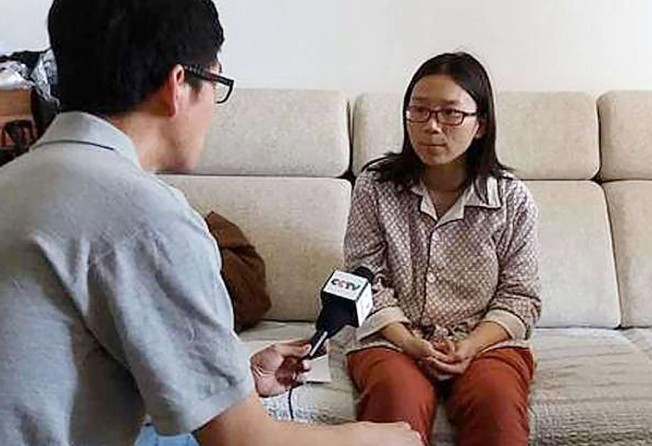A young life lost: it’s time for justice to be served
The investigation into the death in police custody of Lei Yang offers officials a chance to make good on the president’s pledge of fairness

Nearly one month after the suspicious death of a young father in police custody, mainland prosecutors said last Wednesday they would launch an official investigation into five Beijing policemen involved in the case.
The death sparked a national uproar over police brutality and highlighted widespread distrust over law enforcement.
The announcement of the investigation, albeit late in coming, has no doubt raised expectations that it will uncover the truth behind the tragic loss of a young life. But it will be a pity if mainland authorities just treat this as an isolated case – as the signs indicate this is what they intend to do. Instead, leaders should turn this into a landmark case to promote justice and fairness by allowing an open and rational debate online and in the official media so that it can help restore public confidence in the rule of law and law enforcement.
From the very beginning, the official police account of the death of Lei Yang, 29, was met with widespread disbelief and anger.
According to state media reports, on the night he died on May 7, Lei left home between 8.30pm and 9pm to pick up a relative from the airport. But he was detained by police shortly afterward, and less than two hours later, he was dead, his body covered in bruises.
The police had said Lei died in hospital after resisting arrest during an anti-prostitution sting on a brothel fronting as a foot massage parlour near his home.
Following the public uproar, Beijing public security was forced to allow the policeman in charge of the raid to give lengthy interviews to People’s Daily and China Central Television, along with the alleged prostitute, to prove Lei solicited sex and the raid was properly executed.
But the public were further incensed after the police account focused upon Lei paying for sex and more witnesses came forward, contradicting their explanations of how he died.
On May 13, Beijing prosecutors announced that they would begin to investigate the case. The autopsy on Lei was finished early the next day, with the results to be expected within 60 days, which many believed was another delaying tactic.
Police brutality and subsequent cover-ups are nothing new in China but this case has caught nationwide attention
Police brutality and subsequent cover-ups are nothing new in China but this case has caught nationwide attention and anger because of the sheer nature of the case, which has prompted mainlanders to wonder: will I become the next Lei Yang?
In particular, Lei’s background has generated great empathy from the country’s growing middle class. According to media reports, Lei graduated with a master’s degree from Renmin University, one of the mainland’s top schools and worked for a quasi-government environmental organisation.
Prior to his death, he just celebrated his third wedding anniversary, and less than three weeks before, his wife gave birth to a girl.
All in all, Lei represented a typical middle class person in China. As old habits die hard, the initial reactions from the local authorities smacked of a cover-up as they paraded the police officer and the alleged prostitute on national TV to give their side of the story while ordering the massive cybersecurity apparatus to delete online posts contradicting the official version.
But the continuous build-up in national outrage has prompted senior officials to rethink the case as they worry that anything less than a thorough investigation could agitate university students who have already expressed their anger in their blogs and websites. Soon after his death, Lei’s former classmates released an online post questioning the police account even though it was later deleted.
A more concrete sign emerged on May 20 when President Xi Jinping chaired a meeting to discuss a number of issues, including education, farming, economic restructuring, legal assistance, and police reforms. Invariably, all state media played up Xi’s comments that the public should feel social justice and fairness in every law enforcement action and every legal case.
Indeed, there is no better case than Lei’s to illustrate Xi’s point and there is no better timing than using his case to promote justice and rule of law.